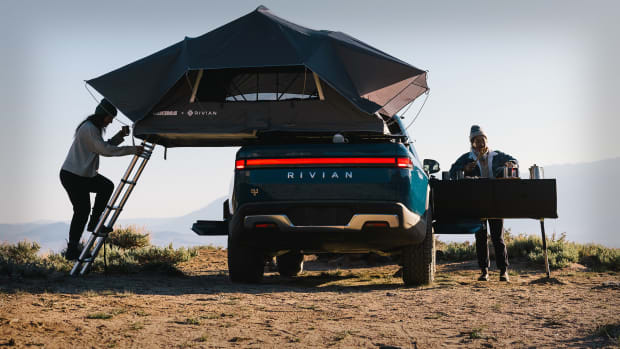Rivian (RIVN) is hoping that its second quarter will be less eventful than its first.
The electric-vehicle manufacturer has worked through a number of issues that are common to newer companies as they persuade investors of their growth potential but also must invest massively and post losses.
In the case of Rivian, which presents as a rival to market leader Tesla (TSLA), the difficulties are not all related to its nascent operations. The entire automotive sector is facing supply-chain disruptions triggered by the Covid-19 pandemic.
Indeed, beginning in 2020, the authorities' measures designed to limit Covid-19 infections particularly hamstrung suppliers of spare parts, forcing carmakers to slow production or close factories altogether. Semiconductors fell into short supply, and prices of key raw materials like nickel, aluminum, palladium and cobalt have soared.
Russia's invasion of Ukraine has accentuated the supply-demand imbalance for metals like nickel, which is important to developing batteries. Russia, targeted by the U.S. and Europe with economic sanctions, is one of the main exporters of nickel.
"Our initial deliveries for the R1T and R1S were delayed, and our production ramp is taking longer than originally expected due to a number of reasons," Rivian explained recently.
"The cascading impacts of the Covid-19 pandemic, and more recently the conflict in the Ukraine, have impacted our business and operations from facility construction to equipment installation to vehicle component supply."

Rivian
Rivian: Production Warning and Reassurance
Rivian was founded in 2009 and went public in 2021. The carmaker produces three vehicles -- the R1T electric pickup truck, the R1S electric SUV, and the the RCV electric commercial van -- in Normal, Ill. Rivian plans to open a second production site, east of Atlanta, in 2024. And it plans to manufacture 400,000 vehicles a year, compared with 1,015 units in 2021.
"We have no experience as an organization in high volume manufacturing of EVs, and we do not expect to reach a vehicle production rate, which, when annualized, would result in us using 100% of the facility’s current installed capacity of up to 150,000 vehicles until late 2023," Rivian warned last week.
The company added: "There have been very sizable increases in recent months in the cost of key metals, including lithium, nickel, aluminum, and cobalt, with volatility in pricing expected to persist for the foreseeable future."
That means operating margins will suffer. And investors were greatly concerned. But Rivian has just somewhat reassured them.
The company reported that it produced 2.553 vehicles in the first quarter, which puts it on track to reach its goal of manufacturing 25,000 vehicles this year at the Illinois plant.
Rivian delivered 1,227 vehicles during the first period. In all of 2021, the company delivered only 929 vehicles, but it started delivering its R1T pickup toward the end of the third quarter.
'Well Positioned to Deliver on Guidance'
"These figures are in line with the company’s expectations, and it believes it is well positioned to deliver on the 25,000 annual production guidance provided during its fourth-quarter earnings call on March 10, 2022," Rivian said in a news release.
This is a relief for investors and for Rivian, which had more or less made clear that the difficulties encountered by some of its suppliers could hurt its production targets and ultimately its deliveries.
The influence of suppliers in Rivian's production is significant. At the beginning of March, the group had said, for example, that the Normal factory had capacity to produce 50,000 vehicles in 2022, but due to supply-chain difficulties, Rivian would manufacture only half that number.
"Our products contain thousands of parts that we purchase from hundreds of mostly single- or limited-source suppliers, for which no immediate or readily available alternative supplier exists," the carmaker said in a Securities and Exchange Commission filing last week.







